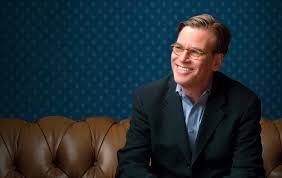THe META APPROACH to FILMMAKING: MAKING THE FILMMAKER the hero
Teachers, we have a problem: we’re going about teaching filmmaking to students the wrong way.
Creating successful filmmakers–in the roles of directing, editing, sound design and cinematography–comes down to embracing two tenets from two influential leaders in the filmmaking world: Aaron Sorkin–director and Academy Award winner screenwriter for The Social Network–and Reb Braddock–Dean of Motion Picture Arts of Florida State University.
Sorkin, as a storyteller, believes in two concepts: intention and obstacle. In fact, he states that he “worships at the alter of obstacle and intention.”
And, on the subject to making stories, Braddock says, “filmmaking, at the end of the day, is nothing more than problem-solving.”
A hero in a story has an intention (a kid wants to have friends over for a pool party because his parents are out of town) and at least one major obstacle (His parents installed a video camera and said, “No parties!”). Viola! You have a story! How does a hero dig deep, utilize resources, and problem solve to overcome the obstacle and achieve his/her intention? That’s a story that I’d like to see.
In short, storytelling involves a character trying to solve at least one major problem.
Apropos, filmmaking involves several student filmmakers trying to solve at least one major problem.
Every story has a hero, and every student is the hero of their story, so let’s pretend that the student filmmaker is the hero of their project (going a little meta here) because let’s face it, all filmmakers have problems to solve.
Here’s where we can marry Sorkin and Braddock’s ideas on process and apply it to our student’s in their filmmaking role.
INTENTION: the sound designer wants to create an ominous original score for their horror project.
OBSTACLE: the sound designer has never done sound design before.
What follows next for student filmmakers is a (hopefully self-directed) journey of discovery that plays out just like a story as they attempt to solve a major problem.
And, if it isn’t a natural, self-directed journey,, encourage students to find a whiteboard, arm their with a dry-erase marker, and ask them to brainstorm ways to inform and solve their problem.
Their first step may be to do some Google research–”How do I create a scary score for a horror film?”
They might also research what horror films have the best, scariest scores.
They might research what instruments work best to create a scary score.
They might also consider if they have any friends who can play instruments.
Notice that by positing a student’s production role and creative intention as a problem that needs to be solved (as opposed to a task to be completed), students can begin to think about and consider the various ways that they can find success with their intention.
Better, yet, students can brainstorm a path that gives them a way forward by asking questions and trying to solve a problem.
In short, when we talk about filmmaking with students, we need to do a paradigm shift as teachers–we need to approach filmmaking as a series of problems that need to be solved.
Successful films aren’t necessarily the films that have the fewest flaws or issues, they are the ones wherein a group of students–intent on using logic, creativity, and research–work individually within a role and together as a group to solve a problem.
Meet the Author, Adam Russell
Adam Russell lives and works in Marietta, Georgia. He is finishing his 22nd year of teaching both film and literature. A 13 year veteran of teaching IB Film, Adam seeks to constantly refine and demystify the art of teaching within the IB framework to help teachers and students find success. In his spare time, he writes feature length scripts and consumes anything and everything that he can get his hands on regarding film: screenplays, films, video essays, books on screenwriting, etc. Comments or questions: write ADAM in the subject line and email streamsemester@gmail.com.
















As summer winds down, the familiar rhythm of a new school year approaches. For educators like James Peach, the weeks leading up to students' return aren't just about shuffling papers; they're a strategic dance of preparation, aiming to ignite inspiration and cultivate self-sufficiency.